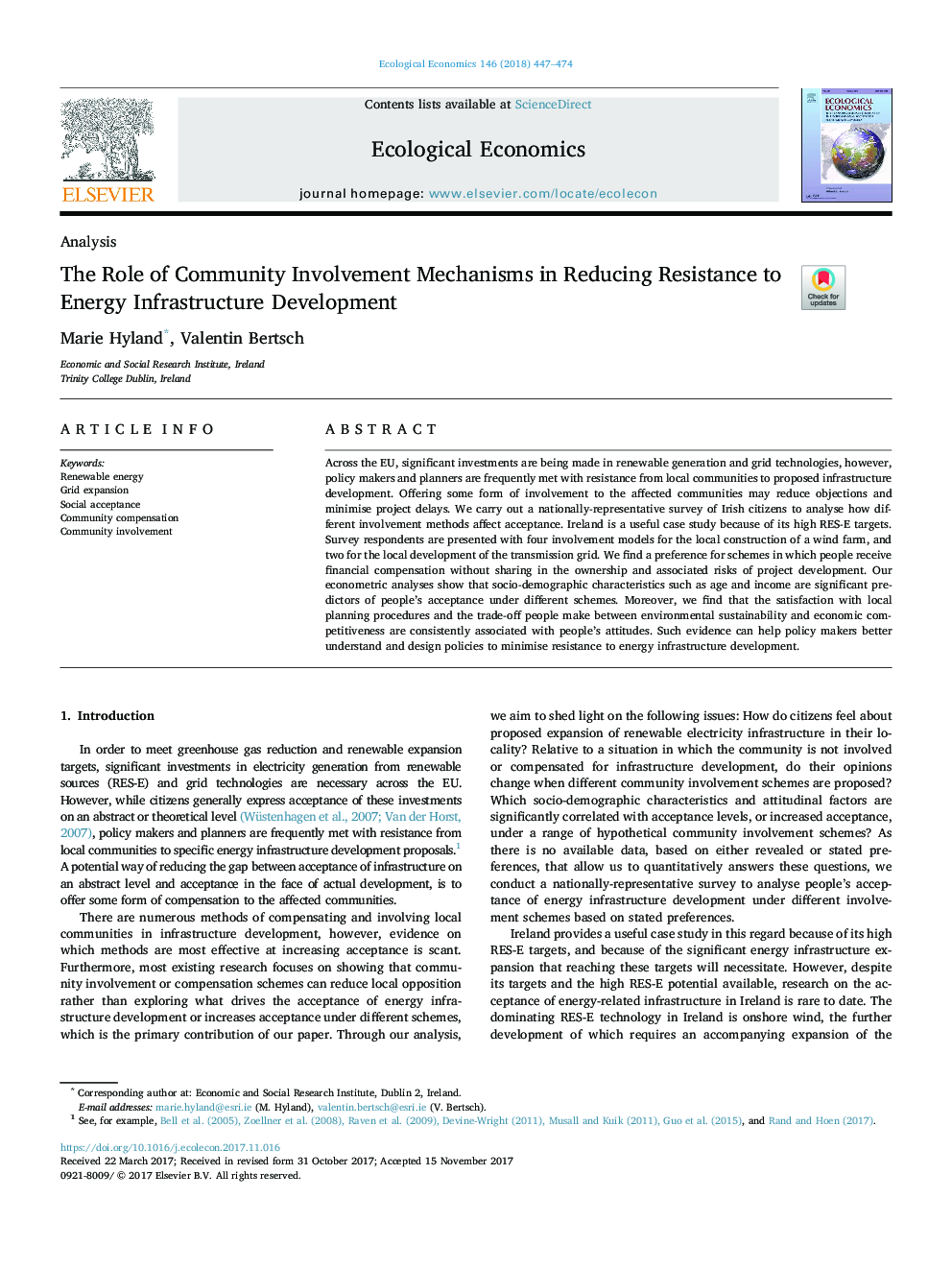| Article ID | Journal | Published Year | Pages | File Type |
|---|---|---|---|---|
| 7344612 | Ecological Economics | 2018 | 28 Pages |
Abstract
Across the EU, significant investments are being made in renewable generation and grid technologies, however, policy makers and planners are frequently met with resistance from local communities to proposed infrastructure development. Offering some form of involvement to the affected communities may reduce objections and minimise project delays. We carry out a nationally-representative survey of Irish citizens to analyse how different involvement methods affect acceptance. Ireland is a useful case study because of its high RES-E targets. Survey respondents are presented with four involvement models for the local construction of a wind farm, and two for the local development of the transmission grid. We find a preference for schemes in which people receive financial compensation without sharing in the ownership and associated risks of project development. Our econometric analyses show that socio-demographic characteristics such as age and income are significant predictors of people's acceptance under different schemes. Moreover, we find that the satisfaction with local planning procedures and the trade-off people make between environmental sustainability and economic competitiveness are consistently associated with people's attitudes. Such evidence can help policy makers better understand and design policies to minimise resistance to energy infrastructure development.
Related Topics
Life Sciences
Agricultural and Biological Sciences
Ecology, Evolution, Behavior and Systematics
Authors
Marie Hyland, Valentin Bertsch,
